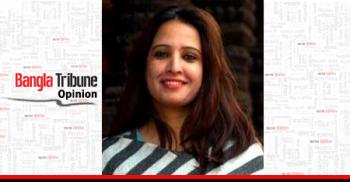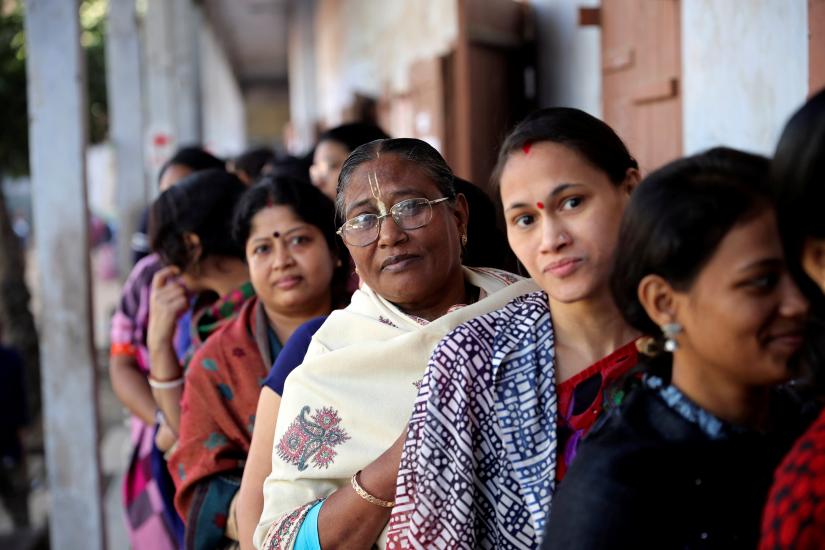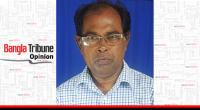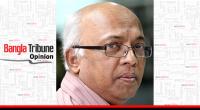 Democracy is not merely about holding periodic elections, but a combination of institutional developments, practices of political rituals, and a culture of tolerance and accountability (Ali Riaz, Inconvenient Truths about Bangladesh Politics, Prothoma Prokashon, 2013). The essential attributes of democracy are regular, free, competitive, multiparty elections for legislative; respect for civil and political rights including freedom of expression, assembly and association as well as a rule of law under which all citizens and agents of the state have true and legal equality.
Democracy is not merely about holding periodic elections, but a combination of institutional developments, practices of political rituals, and a culture of tolerance and accountability (Ali Riaz, Inconvenient Truths about Bangladesh Politics, Prothoma Prokashon, 2013). The essential attributes of democracy are regular, free, competitive, multiparty elections for legislative; respect for civil and political rights including freedom of expression, assembly and association as well as a rule of law under which all citizens and agents of the state have true and legal equality.
However, the presence of these, by themselves does not ensure that society has achieved a democratic polity unless there also exists a democratic culture to nurture them. Democratic culture, on the other hand, includes freedom of expression, accommodation of political opponents, equal treatment of all individuals, inclusiveness in social justice and responsible behaviour of the opposition, etc. Without subscribing to these values by all political parties, citizens, members of the civil society, judiciary and the bureaucracy, democratic institutions are bound to function in an arbitrary manner, thus creating a turbulent political and social atmosphere.
Holding parliamentary elections at regular intervals demonstrate that tremendous progress has been made in ensuring the formal aspect of democracy in Bangladesh in so far it guarantees among other things the right to vote, upholding equality and freedom of expression. However, progress has to be made in regard to the substantive aspects of democracy such as inclusiveness of the citizens, ensuring social justice and building a culture of accountability and responsibility. Before the 11th Parliamentary Election, the Government has given ample space to the opposition to create a level playing field and invited them for dialogue to hold a peaceful election. Subsequently, the peaceful and inclusive election itself incorporated important aspects of democracy such as competitive and fair election, the right to vote and freedom of expression have been greatly achieved.
After the election, Prime Minister Sheikh Hasina through various ways made it clear that the Government is determined to build a sustainable and substantive democratic culture. The Prime Minister has clearly announced that she would show zero tolerance to corruption, shall ensure accountability of the legislative and shall monitor their work and initiatives. Recently the Prime Minister stated that food adulteration is also a corruption the Government will handle strictly. We have noticed that the rape incident of Noakhali has been addressed promptly and the perpetrators have been arrested immediately, which indicates that social justice and rule of law shall be ensured even if activists of the ruling political party are involved. Following from these, it can be expected that a culture of strict accountability, responsibility shall soon develop and none will exert any power arbitrarily. In Bangladesh polity, the culture of tolerance and appreciation has not flourished yet. Now it is the responsibility of the opposition political elites to start practising and preaching these ideas to maintain progress and to consolidate the future of democracy. Political rhetoric that promotes enmity and hatred among different classes of people must be abolished to sustain democracy. Criticism should not be made by the opposition for the sake of criticism. But constructive criticism should be welcomed by the ruling party to create an enlightened society and build a progressive political culture. We have to remember that the failure to appreciate the essence of liberal democracy by undemocratic political elites of the country was at the heart of the previous crises that Bangladesh witnessed since 1975 onwards. Thus it is expected from the opposition, especially the BNP that they will be reasonable, sensible and rational in any situation and discard their previous volatile behaviour and violence for the sake of any political benefit or demand. When the ruling party is determined to create a culture of accountability, it is possible to practice and cultivate a peaceful substantive democratic political atmosphere in the country if the BNP learns from their previous mistakes and discard the path of violence and all sorts of retrograde ideas.
In Bangladesh polity, the culture of tolerance and appreciation has not flourished yet. Now it is the responsibility of the opposition political elites to start practising and preaching these ideas to maintain progress and to consolidate the future of democracy. Political rhetoric that promotes enmity and hatred among different classes of people must be abolished to sustain democracy. Criticism should not be made by the opposition for the sake of criticism. But constructive criticism should be welcomed by the ruling party to create an enlightened society and build a progressive political culture. We have to remember that the failure to appreciate the essence of liberal democracy by undemocratic political elites of the country was at the heart of the previous crises that Bangladesh witnessed since 1975 onwards. Thus it is expected from the opposition, especially the BNP that they will be reasonable, sensible and rational in any situation and discard their previous volatile behaviour and violence for the sake of any political benefit or demand. When the ruling party is determined to create a culture of accountability, it is possible to practice and cultivate a peaceful substantive democratic political atmosphere in the country if the BNP learns from their previous mistakes and discard the path of violence and all sorts of retrograde ideas.
We cannot afford any disruption in our social and political spheres for the sake of sustainable development and democratic order of the country. The citizenry must realize this and come forward to build our cherished nation which we achieved through the sacrifice of million Martyrs. Extremism, violence and the culture of intolerance are serious threats to our democracy and economic development which need to be guarded now. Civil society is an important space where we can stipulate our needs in negotiations with the state or create a social movement against tyranny from any extremist political party. The civil society, media and social organizations of Bangladesh which includes lawyers, journalist, university teachers, student forums, intellectuals, cultural activists, writers, must prove by their vigilance and conduct that they speak up for creating a culture of tolerance and accountability, a political culture free from violence and conspiracy.
We have to realize that substantive democracy is a system of governance having a set of values which cannot be achieved in just a few years, especially when undemocratic Governments have ruled the country for more than two decades and polluted the polity and social order. The process of substantive democracy has been introduced by the Awami League government – a process which instils accountability, social justice, tolerance in society and helps build the institutions to nurture those values, and ensures the participation of the people in the system. This process must be valued and nurtured by our citizens, political parties, bureaucrats, judiciary and civil society for nation-building.
A barrister by training, Farzana Begum is the executive director of rights body Bangladesh Manobadhikar O Poribesh Andolon.
 Opinion
Opinion
30766 hour(s) 49 minute(s) ago ;
Afternoon 05:43 ; Saturday ; Apr 20, 2024
Substantive democracy: Role of political parties and civil society
Send
Farzana Begum
Published : 17:55, Feb 14, 2019 | Updated : 21:16, Feb 14, 2019
Published : 17:55, Feb 14, 2019 | Updated : 21:16, Feb 14, 2019
0 ...0 ...
/hb/
Topics: Farzana Begum
***The opinions, beliefs and viewpoints expressed in this article are those of the author and do not reflect the opinions and views of Bangla Tribune.
- KOICA donates medical supplies to BSMMU
- 5 more flights to take back British nationals to London
- Covid19: Rajarbagh, Mohammadpur worst affected
- Momen joins UN solidarity song over COVID-19 combat
- Covid-19: OIC to hold special meeting
- WFP begins food distribution in Cox’s Bazar
- WFP begins food distribution in Cox’s Bazar
- 290 return home to Australia
- Third charter flight for US citizens to return home
- Dhaka proposes to postpone D8 Summit
Unauthorized use of news, image, information, etc published by Bangla Tribune is punishable by copyright law. Appropriate legal steps will be taken by the management against any person or body that infringes those laws.
Bangla Tribune is one of the most revered online newspapers in Bangladesh, due to its reputation of neutral coverage and incisive analysis.
F R Tower, 8/C Panthapath, Shukrabad, Dhaka-1207 | Phone: 58151324; 58151326, Fax: 58151329 | Mob: 01730794527, 01730794528


